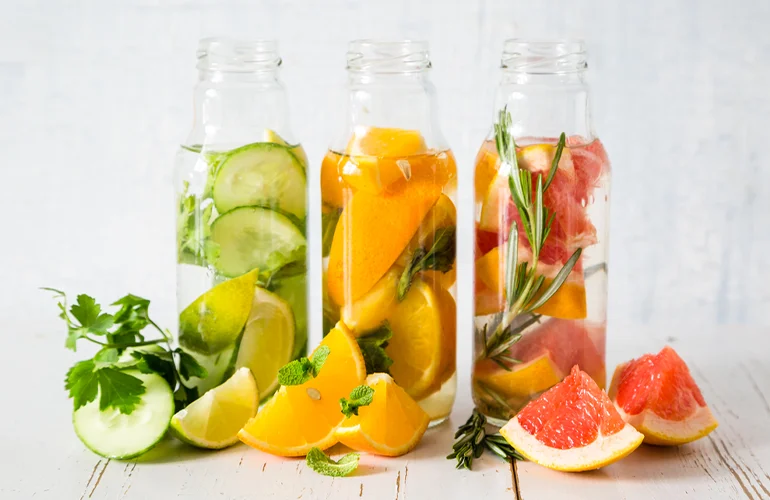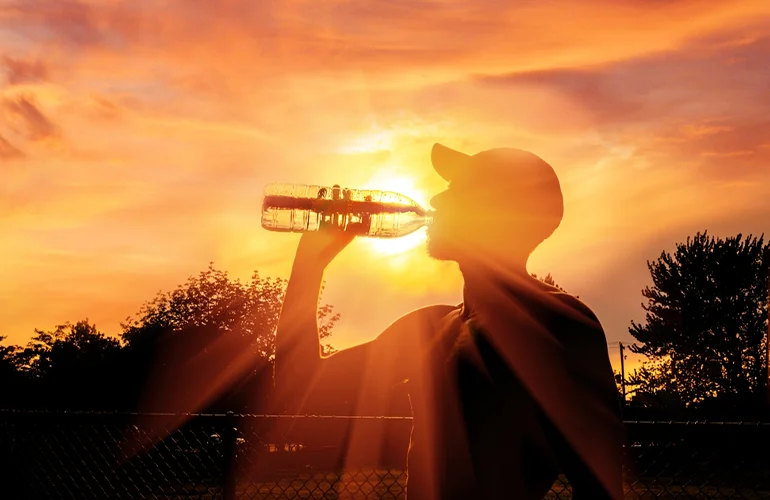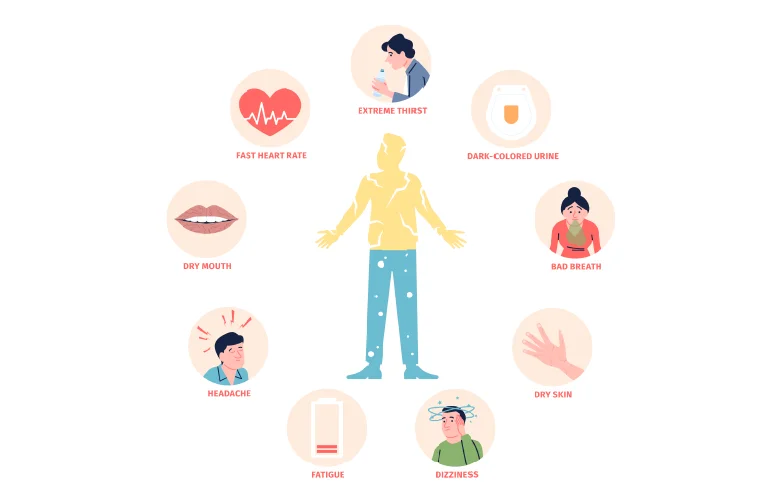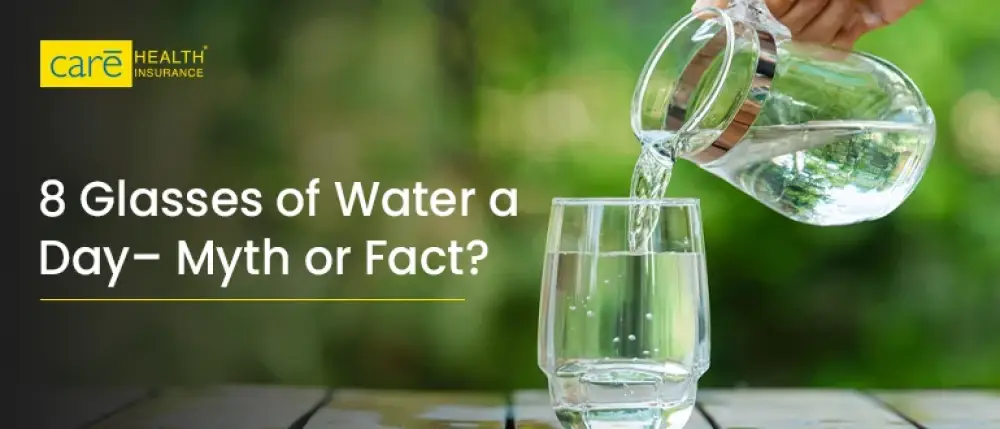In today’s health-conscious society, maintaining proper hydration is a daily goal, often tracked through apps, smart bottles, and well-designed routines. But deep down, many of us wonder, how much water should we drink in a day to stay healthy and energised? Sometimes we might take a few sips while working or studying. On other days, we might try to drink more, hoping it will boost our health. But is more always better?
The truth is, everyone's hydration needs are different. It depends on your lifestyle, your body weight, the foods you eat, and even the weather outside. So instead of just following a general rule, let's take a moment to understand what our bodies truly need and whether the famous “8 glasses of water a day” rule is right for everyone.
Where Did the “8 Glasses of Water in a Day” Rule Come From?
The suggestion to drink 8 glasses (about 2 litres) of water each day comes from a 1945 recommendation by the U.S. Food and Nutrition Board, which advised that the average adult needs around 2.5 litres of water daily. Since one glass equals 250 ml, this adds up to about 8 glasses. However, it's important to remember that a good deal of this fluid can also come from the food we eat, a detail that's sometimes missed in common health tips.
What Does Modern Science Really Say?
Today's health experts emphasise that staying hydrated isn't just about counting glasses of water — it's about considering all the water you get from everything you drink and eat. According to the National Academies of Sciences, Engineering, and Medicine (U.S.), the recommended water intake in a day should be:
- Men: 3.7 litres per day (around 15.5 cups)
- Women: 2.7 litres per day (around 11.5 cups)
This figure isn't just plain drinking water; it also includes fluid from other sources, such as fruits, vegetables, tea, coffee, milk, juices, and even foods like dal, rice, and soups. Instead of stressing over hitting 8 glasses, focus on your hydration throughout the day. You may already be consuming more water through your diet than you realise.
Do All People Need the Same Amount of Water?
No, everyone is unique. Your hydration needs vary depending on your body functions and daily lifestyle. Here are the main factors that determine how much water you should consume a day:
- Age
- Gender
- Body Weight
- Climate & Weather
- Activity Level
- Food Habits
- Health Conditions
Bonus Tip: Instead of sticking rigidly to the 8-glass rule, see it as a gentle reminder to keep yourself hydrated. Your body needs more or a little less water at different times.

How Much Water to Drink in a Day?
Everyone has their own hydration needs. What works well for one person might not work well for another. Let’s find out exactly how much water your body needs each day. Here’s a simple guide to help you stay hydrated:
| Individuals | Daily Water Needs |
|---|---|
| Kids (5–8 yrs) | 1 to 1.2 Litres |
| Teens | 1.5 to 2 Litres |
| Women | 2 to 2.5 Litres |
| Men | 2.5 to 3 Litres |
| Pregnant Women | 2 to 2.5 Litres+300ml(for extra hydration) |
| Breastfeeding Moms | 2 to 2.5 Litres+700 ml(for extra hydration) |
| Athletes | More hydration is needed according to their body. |
Can Drinking Too Much Water Be Harmful?
Yes! While water is essential, drinking much more than your body needs can be harmful. Overhydration, or water intoxication, happens when too much water dilutes necessary salts (electrolytes) in the body, leading to potential issues such as:
- Headaches or pressure in the head
- Nausea or vomiting
- Confusion or irritation
- Muscle cramps or weakness
- In extreme cases, serious health emergencies
Remember, staying hydrated is key, but doing it intelligently is even more essential!
Fun Fact: Did you know your kidneys can process approximately 1 litre of water per hour? Drinking more quickly can overload your system.
Common Myths About Water Consumption or 8 Glasses Rule!
Many common beliefs about drinking water are actually false. Let’s debunk the biggest myths that people still believe.
Myth 1: Everyone should drink 8 glasses of water a day.
The 8-glass rule is simply a friendly guideline; it’s not a strict rule for everyone. Your hydration needs can vary depending on your body weight, level of activity, climate, and overall lifestyle.
Myth 2: Sports drinks are a great option for staying hydrated
Sports drinks can be good when you’re sweating a lot during intense workouts. They help replenish lost salts and energy. If you’re sweating a lot, choose a sports drink that contains sodium. However, they are not meant for everyday drinking but can be helpful during heavy exercise.
Myth 3: Caffeine makes you dehydrated.
Many people think that drinks like tea and coffee can cause dehydration, but that’s not really true. While caffeine might have a gentle diuretic effect, the water content in these beverages still helps keep you hydrated throughout the day.
Myth 4: Clear urine indicates perfect hydration.
While urine colour can offer clues about hydration levels, it is affected by various factors such as diet, medications, and supplements. Typically, pale yellow urine indicates proper hydration, whereas crystal-clear urine might suggest overhydration.
Myth 5: If you’re thirsty, you’re already dehydrated.
Feeling thirsty indicates your body is low on fluids. It serves as an early warning that you need water. Since mild dehydration often starts before you feel thirsty, it's best to sip water regularly throughout the day.
Myth 6: You can’t have too much water.
Drinking more water than necessary can dilute the blood, reducing sodium and other electrolytes. When electrolytes become diluted and the kidneys can't keep the proper balance, it may cause nausea, confusion, headaches, fatigue, and other issues. In severe cases, excessive water intake can be fatal.

Water Intake Calculator: How Much Water Do You Need?
Instead of following a generic rule, why not try this clever hydration tip that many experts suggest? It's a thoughtful way to care for yourself and stay well. Here's a simple way to figure out how much water you should drink each day. The formula is:
Daily Water Intake = Body Weight (kg) × 35 ml
Example:
If your weight is 60 kg, that means 60 × 35 ml = 2100 ml. This indicates you need approximately 2.1 litres per day.
Why this formula works:
- It adapts to your body size.
- More precise than the old 8-glass rule.
- Trusted by fitness coaches and nutrition experts.
- Helps prevent both dehydration and overhydration.
Quick Tip: If you exercise regularly or live in a hot climate, you might need an additional 500–1000 mL of water each day to stay properly hydrated.
What Happens When You Don’t Drink Enough Water?
When your body isn’t getting enough water, it can have a hard time doing even simple tasks. Dehydration isn’t just about feeling thirsty; it can impact almost every part of your body. Here’s what might happen:
- Frequent headaches or dizziness
- Dry skin and chapped lips
- Low energy, tiredness, and poor focus
- Bad breath and dry mouth
- Constipation and digestive discomfort
- Faster heartbeat or increased pulse
Prolonged dehydration can strain your kidneys and affect their function, posing a serious health risk.

>> Read More: Best Dry Fruits for Health that Improve Your Wellbeing
Don’t Just Drink Water, Protect Your Health Too!
Staying hydrated is really about listening to what your body needs, rather than sticking to the rule of drinking 8 glasses a day. Some days you need more water, and other days less. Watch for body signals such as thirst, fatigue, or dry mouth; your body is constantly communicating with you. When dehydration gets too serious, it can lead to significant health issues like kidney damage, which might require urgent and costly medical attention.
While you work on improving your daily habits, such as drinking enough water, eating water-rich foods, and avoiding overhydration, remember to take care of your overall health, too. Having a good health insurance plan can give you peace of mind by supporting you financially during unexpected medical emergencies, so you can get the proper treatment when you need it most without any worry.
Disclaimer: The above information is for reference purposes only. Kindly consult your general physician for verified medical advice. Health insurance benefits are subject to policy terms and conditions. See policy documents for details.
